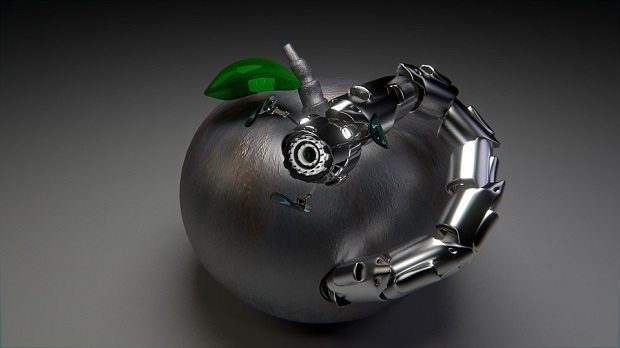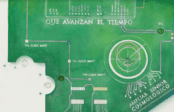[dropcap style=”font-size:100px; color:#992211;”]T[/dropcap]eh nanobotz be tempting us with ‘Yeah, we’ll fix your planet for you if you’ll just remove the restrictors’. R2D2 trust-betrayers, all of them.
Whether they’re sealing you out of an airlock or sapping your brain for processing power as you jump through Planck space, if we’ve learned one thing from sci-fi (other than that Cuban heels will always be cool), it’s NEVER TRUST THE BOTS.
The combination of human and computer intelligence might be just what we need to solve the “wicked” problems of the world, such as climate change and geopolitical conflict, say researchers from the Human Computation Institute (HCI) and Cornell University.
In an article published in the journal Science, the authors present a new vision of human computation (the science of crowd-powered systems), which pushes beyond traditional limits, and takes on hard problems that until recently have remained out of reach.
Humans surpass machines at many things, ranging from simple pattern recognition to creative abstraction. With the help of computers, these cognitive abilities can be effectively combined into multidimensional collaborative networks that achieve what traditional problem-solving cannot.
Most of today’s human computation systems rely on sending bite-sized ‘micro-tasks’ to many individuals and then stitching together the results. For example, 165,000 volunteers in EyeWire have analyzed thousands of images online to help build the world’s most complete map of human retinal neurons.
This microtasking approach alone cannot address the tough challenges we face today, say the authors. A radically new approach is needed to solve “wicked problems” – those that involve many interacting systems that are constantly changing, and whose solutions have unforeseen consequences (e.g., corruption resulting from financial aid given in response to a natural disaster).
New human computation technologies can help. Recent techniques provide real-time access to crowd-based inputs, where individual contributions can be processed by a computer and sent to the next person for improvement or analysis of a different kind. This enables the construction of more flexible collaborative environments that can better address the most challenging issues.
This idea is already taking shape in several human computation projects, including YardMap.org, which was launched by the Cornell in 2012 to map global conservation efforts one parcel at a time.
“By sharing and observing practices in a map-based social network, people can begin to relate their individual efforts to the global conservation potential of living and working landscapes,” says Janis Dickinson, Professor and Director of Citizen Science at the Cornell Lab of Ornithology.
YardMap allows participants to interact and build on each other’s work – something that crowdsourcing alone cannot achieve. The project serves as an important model for how such bottom-up, socially networked systems can bring about scalable changes how we manage residential landscapes.
HCI has recently set out to use crowd-power to accelerate Cornell-based Alzheimer’s disease research. WeCureAlz.com combines two successful microtasking systems into an interactive analytic pipeline that builds blood flow models of mouse brains. The stardust@home system, which was used to search for comet dust in one million images of aerogel, is being adapted to identify stalled blood vessels, which will then be pinpointed in the brain by a modified version of the EyeWire system.
“By enabling members of the general public to play some simple online game, we expect to reduce the time to treatment discovery from decades to just a few years”, says HCI director and lead author, Dr. Pietro Michelucci. “This gives an opportunity for anyone, including the tech-savvy generation of caregivers and early stage AD patients, to take the matter into their own hands.”
Source: Eurekalert/Human Computation Institute

Some of the news that we find inspiring, diverting, wrong or so very right.





















TREBUCHET = BULLSHIT SCAM SITE
Sorry you’re having trouble accessing Trebuchet, Len. It can be frustrating when it fails to load, and we’re doing what we can to make the process smoother.
Sometimes it’s just slow to re-load the page after you’ve clicked ‘like’. On other occasions, the ‘like’ fails to register, and it’s just a case of having to re-click. Even if you like the page twice, it’ll only appear on your Facebook once.
We’re not a scam site, honestly, and the likewall is simply a means of bringing some traffic to the site. It’s not so much to ask for daily updated content by human writers.